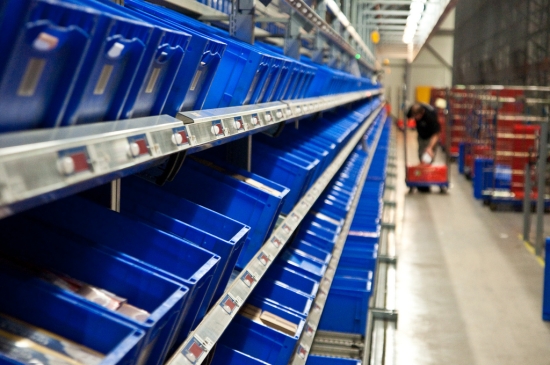In many ways they are the perfect supermarket. There are no queues at the checkouts. There is no Muzak. And there are no customers. The only people you’ll see are “pickers” selecting groceries for on-line orders. These are Britain’s growing network of “dark supermarkets” and the statistics for their existence are hard to dispute.

The online grocery market netted £6.5bn last year. Still less than nine per cent of the total 2013 in-store spend of £74bn, but internet shopping is expected to more than double in the next four years. That’s a 123 per cent increase compared to the expected supermarket rise of just eight per cent for the same period.
Tesco, Asda, Sainsbury’s and Waitrose all operate dark supermarkets with more planned in the next two years. The biggest problem with filling on-line orders within high street stores, the sector admits, is the customer — they keep getting in the way.
Waitrose has just opened its first dark supermarket in what was once a John Lewis carpet warehouse in Hanger Lane, west London. “We don’t have sufficient capacity in our shops to meet the internet demand from our customers so we created a dedicated store to enable us to fill those online orders,” said retail director Rob Collins.
Tesco, which claims to have introduced the dark supermarket to Britain, has taken the high-tech shopping concept to yet another level. At its sixth and newest dark store in Erith, south-east London, it operates a robotic system called “goods-to-person pick station”.
Instead of the traditional aisles, at Erith almost the entire stock is laid out in towers of blue crates. The “picker” remains stationary and the robot extracts and returns with whatever is needed. The only things selected by hand are freezer items. Tesco’s robots are built by the Luxembourg-based Dematic which, in the jargon of the dark supermarket, claims that “with its ergonomic design, you get 100 per cent golden zone single-level picking.”
“Online is just showing huge, huge growth,” says Jennifer Creevy, deputy editor of Retail Week. “It just makes so much sense.” So, too, does innovation as Morrisons recently discovered. Of the big four supermarkets it had the worst Christmas and was forced to issue a profits warning. The reason, many analysts claim, is that Morrisons didn’t offer online shopping until well into the New Year.
So what do you do with your supermarket in 10 or 20 years’ time when all your customers are being served by a fleet of delivery vans? Once again, Tesco thinks it has the answer. It recently transformed one of its Watford stores into something akin to a shopping mall, with a cafe, a clothes shop, a restaurant and even a community centre.
Previous Post
Everything a Pound — Except its Shares